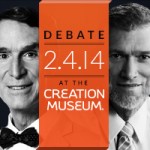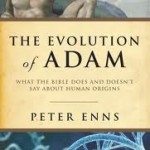 Today’s post is by Harold Heie, Senior Fellow at the Center for Faith and Inquiry at Gordon College (full bio here). He is the author of Learning to Listen, Ready to Talk: A Pilgrimage Toward Peacemaking,
Today’s post is by Harold Heie, Senior Fellow at the Center for Faith and Inquiry at Gordon College (full bio here). He is the author of Learning to Listen, Ready to Talk: A Pilgrimage Toward Peacemaking,and his interest is in creating respectful conversations on the internet about difficult topics. Below is my interview with Harold Heie concerning his book, Evangelicals on Public Policy Issues: Sustaining a Respectful Political Conversation
.
What is your book all about?
Six evangelical Christians who situate themselves at various points along the political spectrum posted position papers on my web site (www.respectfulconversation.net) on the following public policy issues: the federal budget deficit, immigration, religious freedom, Syria and Iran, Israel and Palestine. Poverty in the US, marriage, health care, K-12 education, gun control, abortion, and the role of government.
The bulk of this book contains my syntheses of their postings, in which, for each topic, I identify common ground and remaining unanswered questions that can be the basis for ongoing conversations. The book concludes with postscript essays from my six contributors.
Why did you write this book?
I was initially motivated by my utter dismay at the brokenness of contemporary political discourse, characterized by demonizing political opponents, calling their motives into question, and using the most coarse and vitriolic language in expressing disagreements, all of which contributes to political gridlock. I decided that there has to be a better way to do politics.
What is that better way?
My understanding of a better way to do politics is deeply informed by my Christian faith commitment. As a Christian, I aspire to be a follower of Jesus who taught his followers to love God with all their hearts, souls and minds and to love their neighbors as themselves.
I believe that a deep expression of my loving another person is to give that person a welcoming, safe space to disagree with me on important issues and then to engage that person in respectful conversation about our disagreements for the purpose of identifying common ground and illuminating our remaining differences sufficient to enable us to continue the conversation.
That ideal sounds out touch with how politics works these days. Can you realistically envision our politicians and their supporters engaging one another in that respectful way?
That ideal is certainly a stretch, to say the least. In that light, I had no intention of writing a book that would try to convince anyone, in the abstract, that respectful conversation is possible in our current political climate. That would be impossible.
Rather, I chose to write a book that demonstrates that “it can be done;” my ideal can be realized. My book actually models respectful conversation in the political realm; in this case among evangelical Christians having widely divergent political views.
Do you think that your model will have any influence beyond a small band of evangelical Christians?
God only knows. I and my contributors have attempted to faithfully witness to a way to do politics that is true to the command of Jesus that we love those who disagree with us. I am happy, and relieved, that I can leave the results of that faithful witness in the hands of God. Drawing on the words on Jesus recorded in Matthew 13:31-32, we have planted a “seed of redemption.” The harvest can be entrusted to God.
But I assume you have hopes and that your model will catch on in a big way.
Certainly My dreams have always exceeded what seems possible at the moment. It is my dream that my book will not be the end of conversations about 12 thorny public policy issues, but will only be the beginning.
Through the eyes of faith, I can envision these conversations being continued in numerous venues, such as college classrooms and educational settings in churches. My wildest dream is that some local, state or national politicians will take notice of this model and will give it a try.
What obstacles do you see to that dream coming to fruition?
The obstacles are enormous, primarily because of the dominant prevalent view of the purpose of political activity. Anyone who thinks that the primary purpose of doing politics is to get elected or to support someone else’s election will find little of value in this book.
But if one believes, as I do, that the purpose of politics is to govern well, and such governing requires seeking the common ground needed to promote the common good, then the model I present shows a way to make that happen.
But isn’t your view of the purpose of politics being to find sufficient common ground to foster the common good a minority view today, even facing extinction?
It is worse than that. Our current political system punishes those who believe they need to “reach across the aisle” to find common ground with their political opponents. Politicians are typically rewarded for taking a “my way or the highway” approach, eschewing the quest for “both/and solutions” to contemporary problems that draw on the best insights of those on both sides of the aisle.
This does not paint a hopeful picture for the future of politics, or for your model having any significant influence among contemporary politicians or their supporters.
I realize that. I think it is fair to say that the model I am proposing is necessary, but it is not sufficient. Some significant changes in the very structure of politics will be needed to create a political environment that is conducive to the flourishing of the model I am proposing.
I am not competent to spell out the full nature of these structural changes. But they will surely include addressing the problems created by the enormous amounts of money that are expended on the election of those with extreme views and the thwarting of the political aspirations of those who aspire to “govern from the middle” by seeking for common ground with members of the other party to work toward “balanced’ solutions to our most pressing societal problems.
You refer to the possibility of arriving at “balanced” solutions to pressing societal problems. Can you be more specific as to what such “balance” may look like?
I and glad you asked. In the midst of the diversity of viewpoints expressed in my book, a common theme did emerge: the need for balance between competing views. I will give two brief examples, the details of which are elaborated in the book. There is little hope for solving the federal budget deficit problem unless a balance is struck between the need for cuts in expenditures and the need for increased revenues.
Likewise, in the gun control debate, the choice is not between addressing the mental health and culture of violence problems that beset our nation or legislatively enacting some commonsense gun control measures. It has to be both, in proper balance
If persons in the media read this book, what will most surprise them?
Since the media has often described evangelical Christians as if they were monolithic in their beliefs, the biggest surprise will be the revelation that deeply committed evangelical Christians hold to a great diversity of views on most public policy issues.
Another big surprise will be for the media to see that evangelical Christians who disagree can actually talk to each other graciously and respectfully (in sharp contrast to the many sad instances in which evangelical Christians have contributed to the cesspool of much contemporary political discourse).
Let me end where I possibly should have started. Given the sorry state of much contemporary political discourse, what do you say to Christians who say that politics is so broken that Christians would be better off devoting their time and energies to sowing seeds of redemption in other areas of endeavor?
An adequate question could require another book. My short answer is that, contrary to the narrow view that God only wishes to redeem individual persons (which was prevalent in my pietistic Christian upbringing), I now embrace a broad view that God wishes to redeem all of the created order, including the political realm (see Colossians 1:20).
I deeply admire those Christians who say that in light of the brokenness of the world, we should focus on modeling an alternative way of life in our Christian communities. I agree with the importance of such modeling in our Christian communities. But that does not preclude some Christians, like me, sensing a deep calling to model Christian living in the political realm. Once again, it should not be either/or. It should be both/and.












